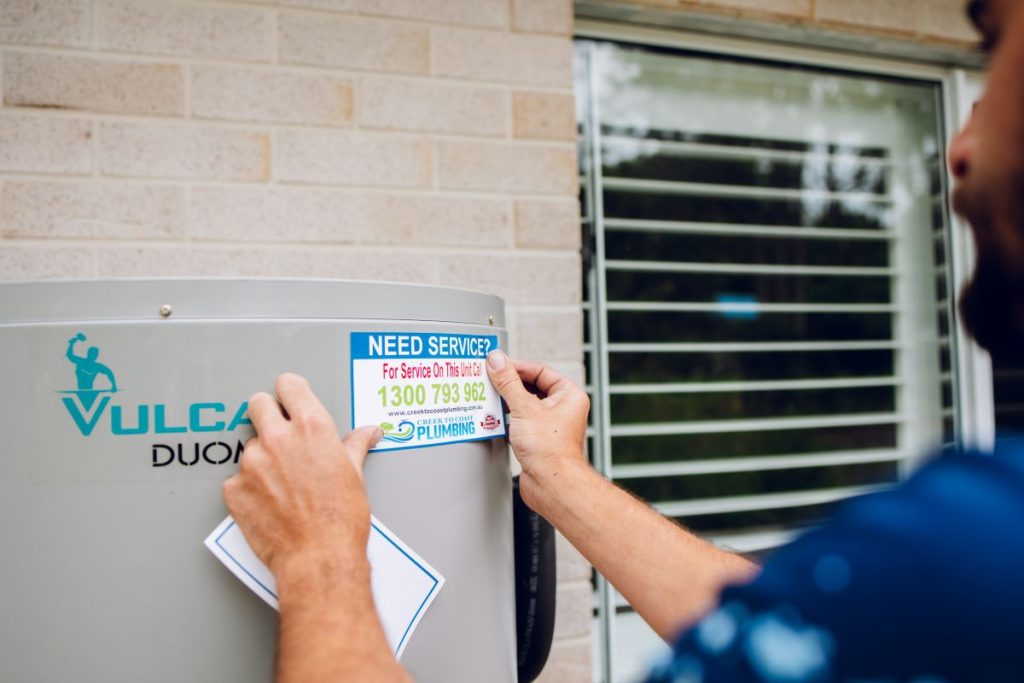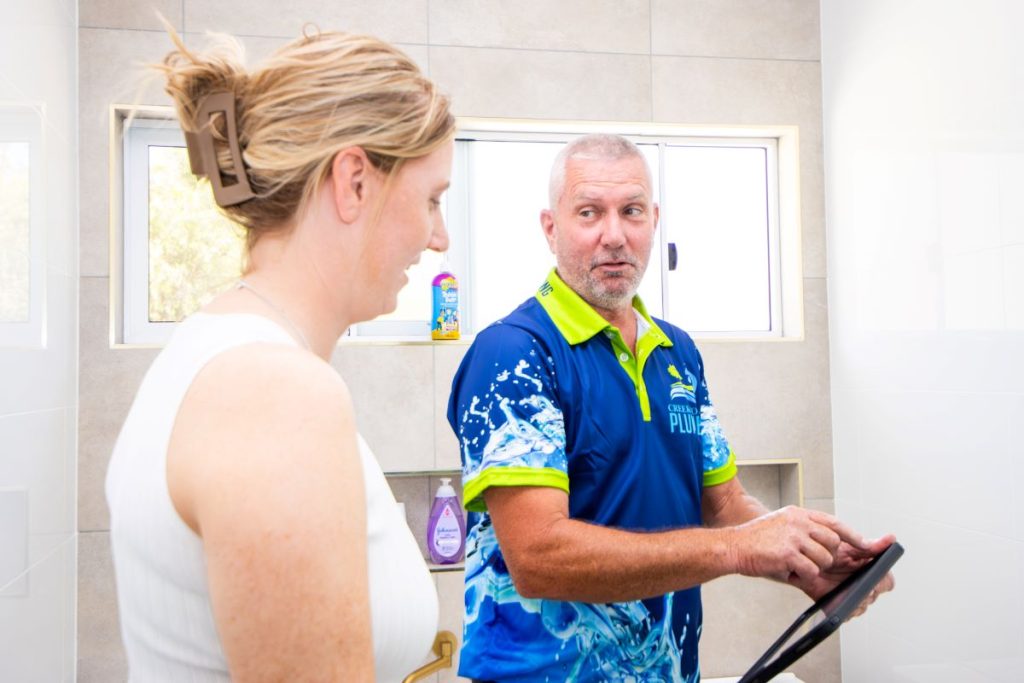Hot water systems operate continuously to supply hot water whenever you need it, playing a crucial role in your daily activities. However, similar to other household appliances, they have a finite lifespan. Being aware of the signs that suggest your hot water system is ready for replacement can save you from uncomfortable situations like enduring cold showers, facing potential water damage, or incurring expensive emergency repairs that disrupt your normal routine. By being proactive, you can ensure that you maintain a comfortable and efficient home environment.
What is the typical lifespan of a hot water system? The expected longevity of these systems can differ widely based on the specific type you have and the level of maintenance it receives. Regular inspections and proper care can play a significant role in extending the lifespan of your hot water system, ensuring it performs consistently well for many years to come.
Let’s explore the details to provide you with a clearer understanding of what to expect.

Discover the Lifespan and Performance Expectations for Various Hot Water Systems
Here’s an overview of what you can generally expect regarding the lifespan and functionality of the most common hot water systems utilized in Queensland homes:
Electric Storage Hot Water Systems
- Typical Lifespan: 8–12 years
- Common Reasons for Failure: Frequent issues include internal corrosion, depleted anode rods, and sediment accumulation that can severely impact operational efficiency.
- Key Signs to Watch For: Stay alert for rusty or discolored water, leaks at the base of the unit, or longer heating times, as these may signal significant underlying problems.
Gas Storage Hot Water Systems
- Typical Lifespan: 8–12 years
- Common Reasons for Failure: Similar issues to electric systems can occur; however, these systems may fail sooner, especially in environments exposed to salty coastal air.
- Key Signs to Watch For: Be vigilant for pilot light malfunctions, lower water temperatures, or unexpectedly high gas bills, which can indicate an inefficient system.
Instant Gas Hot Water Systems (Continuous Flow)
- Typical Lifespan: 10–15 years
- Reasons for Longevity: These systems do not utilize a storage tank, which significantly minimizes the potential for corrosion-related failures over time.
- Key Signs to Watch For: Be observant of fluctuating water temperatures, ignition issues, or a noticeable reduction in water flow rate, signaling a possible need for professional service.
Electric Instant Hot Water Systems
- Typical Lifespan: 10–15 years
- Common Issues: Failures often arise from malfunctioning heating elements or thermostats, both of which can compromise overall system performance.
- Warning Signs: Be mindful if your water fluctuates between hot and cold or takes longer than usual to heat, as these could indicate deeper issues that require attention.
Heat Pump Hot Water Systems
- Typical Lifespan: 10–15 years
- Efficiency: These systems are known for their high energy efficiency; however, they can be sensitive to climate variations and installation locations, impacting their overall performance.
- Signs of Potential Issues: Signs that trouble is on the horizon include louder than normal operation, extended heating cycles, or rising energy bills, all indicating a potential need for inspection.
Solar Hot Water Systems
- Typical Lifespan: 15–20+ years for solar panels, 8–12 years for the storage tank
- Note: Typically, the storage tanks wear out before the solar collectors, which can impact the overall efficiency of the entire system.
- Key Signs to Watch For: Be alert if the water fails to heat adequately on overcast days or if you notice rusty water or complications with booster operations.

Identifying Critical Warning Signs of a Failing Hot Water System
Even before your hot water system reaches its anticipated lifespan, it may begin to show warning signs indicating that it is struggling. These concerning indicators include:
- Fluctuating Water Temperatures
If your water takes longer to heat or runs out faster than before, it is essential to investigate further to avoid potential issues. - Rusty or Discolored Water
This often points to corrosion within the tank or a failing anode rod, both of which necessitate immediate attention to prevent further damage and costly repairs. - Unusual Noises
Popping, gurgling, or banging sounds during the heating cycle frequently indicate sediment buildup inside the tank, which can drastically reduce efficiency. - Leaks or Pooling Water
Even a small drip can signify that your tank may be cracking or that the valves are beginning to fail, necessitating prompt inspection and repairs to avoid further complications. - Higher Energy Bills
An aging unit often struggles to produce the same amount of hot water, forcing it to work harder, which ultimately results in increased energy costs.
Understanding the Effects of Seasonal Changes on Hot Water System Efficiency
In Queensland, transitioning from warm to cooler months can create significant challenges for aging hot water systems. As outdoor temperatures drop, these systems must work harder to maintain the desired water temperature, and those nearing the end of their lifespan may suffer complete failure during this critical period, leading to discomfort and inconvenience.
Identifying the Ideal Moment for Hot Water System Replacement
If your system exhibits any of the following characteristics, it may be time to explore the idea of replacement:
- Over 10 years old
- Regularly experiencing breakdowns
- Failing to meet your household’s hot water needs
- Showing visible signs of wear or corrosion
Recognizing these warning signs could indicate that it is the right time for an upgrade to ensure consistent hot water supply.
At Creek to Coast Plumbing, our approach goes beyond merely replacing your unit; we thoroughly evaluate various factors such as your family size, water usage habits, energy preferences, and the layout of your property. This enables us to recommend the most efficient and cost-effective hot water system tailored specifically to meet your needs.

Choosing the Right Hot Water System to Fit Your Household Requirements
Based on your specific needs and household requirements, our expert team may recommend:
- Electric or Gas Storage systems for their reliability and cost-effectiveness, ideal for traditional homes.
- Continuous Flow (Instant) systems that are perfect for smaller homes or households with lower hot water consumption.
- Heat Pumps that provide significant energy savings, particularly advantageous in warmer climates.
- Solar Hot Water systems designed for long-term cost efficiency and environmental sustainability, promoting a greener and eco-friendly lifestyle.
In addition, we evaluate whether the current positioning of your hot water system is optimal or if relocating it could enhance its performance and overall efficiency, ensuring you make the most informed choice.
Seize the Opportunity to Upgrade Your Hot Water System
Replacing your hot water system at the right moment is not only about preventing system failure; it also presents a unique opportunity to upgrade to a more reliable, energy-efficient model that better aligns with your lifestyle and needs.
If your unit is displaying any signs of aging or if you are uncertain about which system would be best for your home, the licensed plumbers at Creek to Coast Plumbing are ready to provide you with expert guidance tailored to your specific situation.
The Article: Hot Water System Lifespan: A Guide for Queensland Homes first appeared on https://writebuff.com
The Article Hot Water System Lifespan Guide for Queensland Homes Was Found On https://limitsofstrategy.com

